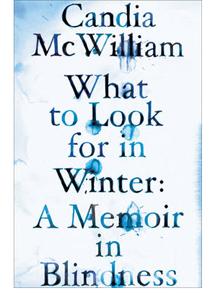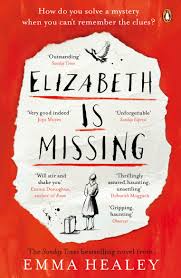The Signature of All Things
February 1, 2015 at 1:15 pm | Posted in Uncategorized | 3 CommentsTags: Book Clubs, book review, Books, good book reviews, Great Reads
The Signature of All Things
Elizabeth Gilbert
Bloomsbury 2013
What a wonderful treat ‘The Signature of All Things’ is. I was initially put off buying this book by Elizabeth Gilbert’s fame from the arguably precocious ‘Eat Pray Love’ but thank goodness I suspended my judgement because this novel is truly awesome in every sense of the word. It’s literary, compelling, different and spiritually underscored. It follows the life of Alma Whittaker a girl born at the turn of the century in the 1800’s to a father who has built an import export empire on his own steamy grit, taking no prisoners on the way. Alma is intelligent, diligent but not conventionally good looking and in no way destined for a typical life of a young lady of her time.
Alma develops a lifelong love for botany and a strong business mind under her father’s tutelage which is sometimes welcome and oftentimes forced. Her work takes her to deep questions about evolution which in turn take her on several journeys; emotional, physical, financial and spiritual
I can’t do this book near enough justice with my review. Alma is such a real and complete character, the setting of Philadelphia is such an apt backdrop for this story and every step it takes you on just feels so right and most splendid of all where the story ends is so glorious for professional women.
The book in haiku: Read, enjoy, wonder, forget how to eat, pray love, renaissance woman
McEwan reigns
November 11, 2014 at 10:24 pm | Posted in Great for Book Clubs, Middle Weight Fiction, The Children Act | 2 CommentsTags: Book Clubs, book review, good book reviews, Great Reads, new fiction, recomended reads
Ian McEwan ‘The Children Act’, Jonathan Cape 2014
Ian McEwan is a master storyteller. In his latest novel he brings us on a journey into the moment of a life of a very successful high court judge, Fiona and the personal and legal challenges she simultaneously faces.
McEwan employs his impressive skills of engineering a plot and grinding the wheels of prose to tenderly lament a marriage in peril after thirty years and to bring us on the journey of Fiona’s greatest professional challenge – the case of a seventeen year old Jehovah’s Witness boy who is refusing a lifesaving blood transfusion on the grounds of his religion.
To compare this novel to ‘Solar’ or ‘Saturday’ would be an easy thing to do but not appropriate, for this novel relays something that has provoked McEwan’s sensibilities and interest and perhaps it is this suspect personal feel that distinguishes this novel from his others.
The Guardian, in their review of ‘The Children Act’ observed that McEwan is fascinated with ‘great institutionalized authorities’ in the upper echelons of society – his protagonist in ‘Saturday’ from the esteemed medical profession and in ‘Solar’ a research scientist. Now in ‘The Children Act’ a high court judge. His deluges into Fiona’s personal difficulties however feel more poignant and sit a little less easy than journeys with his previous characters whose theatrical personalities lend themselves to plots of great scope and pace.
What does McEwan feel about Fiona and her situations really? I’m not sure by the end of the novel but I know her view of the world and her vantage point from the legal profession captured his imagination and I felt glad to have been moved by some deeply beautiful prose;
‘It could be just like that, a poisonous obsession, an addiction drawing him away from home, bending him out of shape, consuming all they had of past and future, as well as present.
Either way unbearable.
Unbearable and fascinating. And irrelevant.’
The Children Act in haiku
Legal vantage points
Logic and closed emotions
Verdicts that flounder
The Secret History Donna Tartt
April 4, 2014 at 4:24 pm | Posted in Award winners, Middle Weight Fiction, Popular Fiction, The Secret History | 1 CommentTags: Book Clubs, book review, Book Reviews, bookclub, Bookreviews, good book reviews, Great Reads, popular fiction, recomended reads

It is understandable how Donna Tartt’s ‘The Secret History’ became a long-term bestseller and conquered a place in so many book lovers hearts. The story centered on a group of young bright affluent students at an exclusive Vermont College in the 1980’s roaming wild and burning through money is exceptionally engaging .and compulsively addictive.
The young group is composed of a variety of apparently sympathetic characters Richard who, unlike his peers, is on a scholarship to the exclusive college and is at great pains to conceal his blue-collar roots, twins Camilla and Charles known for their manners and gentle ways, Henry the emergent leader of the group remarkable for his adaptability to changes in circumstance and ability to mix easily with all sorts of people and also Francis and Bunny who enjoy all life has to offer with great self-assurance. What the characters all have in common is that they are all students of the charismatic erudite Professor Julian Morrow who teaches them Classics exclusively to a level of detail and reverence far above the academic norm.
Inspired deeply by their passionate teacher a few members of the group perform a Dionysian rite one night (a rite designed to work the worshiper into a state of ecstasy in order to feel the power of the gods through wine, dancing and often sexual expression) but the rite has truly gross consequences for the group which go on to drive the plot to even wilder and darker places and the death of Bunny Corcoran (whose death is revealed to the reader in the first line of the novel). 
Do not look for redemption, regret or guilty melancholy from this group, as a reader the novel demands that one must think much bigger when it comes to this motley crew and contemplate openly Donna Tartt’s brilliant subtle suggestions that Henry may himself be the devil incarnate and that in this existential world absolutely anything is possible once you have the nerve and stomach for it.
The plot is set in the familiar routines of college life against the rich dripping backdrop of the classical world of Greek and Latin language, prose and poetry. Donna Tartt’s prose is just so accomplished that at times it feels like God himself has lifted the telephone to call you personally and reveal some select mysteries of the world;
‘…there was never any doubt that he (Henry) did not wish to see us in our entirety, or see us, in fact, in anything other that the magnificent roles he had invented for us: genis gratus, corpore glabellus, arte multiscius, et fortuna opulentus – smooth cheeked, soft-skinned, well-educated, and rich. It was his odd blindness, I think, to all problems of a personal nature which made him able at the end to transmute even Bunny’s highly substantive troubles into spiritual ones.’
The novel in haiku; murderous thoughts fly, money and nerve conquer all, but it takes just one
This is not a dream………..
June 3, 2011 at 1:24 pm | Posted in Great for Book Clubs, Middle Weight Fiction, Sex and Stravinsky | 1 CommentTags: Book Clubs, Book Reviews, Books, Great Reads
‘Sex and Stravinsky’ Barbara Trapido, Bloomsbury, May 2010
Not unlike Shakespeare’s ‘A Midsummer Night’s Dream’ Barbara Trapido’s new novel is a story of demented romantic and filial love but unlike Shakespeare’s comedy for Trapido’s characters none of it is a dream. 
The choices of two sets of couples are compounded by impulse and coincidence. Caroline a beautiful and brilliant tall Australian falls under the charm of Josh a Jewish South African who both in pursuits of their careers come to live in England. Meanwhile Hattie and Herman make a life for themselves in South Africa unaware of the momentous connection they have with Caroline and Josh.
The story is set between Trapido’s native South Africa and England during the late 1970’s gracing the story with scope and bathed in the historical half-light of South Africa coming out of apartheid. The geography of the two locations allows the idea of serendipity to filter through as the story’s tenant. No matter how far these characters diverge from the paths they were meant to go down fate will find them and realign things to how they should be. This in an oridnary novel could be bland but Trapido is under the wing of Bloomsbury publishers who never publish anything but inventive writing.
Like magic, although Trapido’s novel makes confusing and rapid choices if you believe in her, the incredible becomes completely credible.
What to look for in a memoir…
February 4, 2011 at 4:33 pm | Posted in Biography | 1 CommentTags: Book Reviews, Books, Great Reads, Memoirs
I would as a reader generally shy away from reading memoirs and biographies as often even the most interesting stories are so heavily grounded in narrative they become disengaging. Candia McWilliams memoir ‘What to Look for in Winter’ is movingly different. She sets the narrative of her suffering at the loss of her sight against the often tragic but beguiling story  of her life producing a well paced and plotted memoir.
of her life producing a well paced and plotted memoir.
McWilliams was judging the Booker Prize in 2006 when she first began to lose her sight and when we meet her in the book she is Cambridge educated, part of the English aristocracy has been married twice once to an Earl and emerged out of these relationships with three children and a wicked drinking problem.
I believe in person there is an other worldliness quality about McWilliams and a striking beauty , the same can be said about her writing. Her memoir has a detached tone when describing her experiences which mirrors McWilliams own withdrawal from the world. Throughout her life she gains and loses many things; husbands, homes, health, self respect….she probes each experience with her beautiful literary eye pulling together the sense of her life with the aid of a Cambridge inspired vocabulary.Her strong sense of self is paraded out through confident prose and language, meaning becomes jewelled in language. In one particularly beautiful scene McWilliams daughter asks here why she likes the royal family and her explanation encapsulates the ideology of the royal family with a very clever perspective.
Her experiences at times are physical (the loss and re-gain of her sight, horrific battles with alcohol), at times they are heavily emotional self-destructive, ugly, romantic, poignant but the eye with which McWilliams looks at her own life with is so probing that all these experiences and battles with herself are beautiful because they are self aw are.
are.
It is with deep self-awareness this memoir is written and that’s what sets it apart from the others. That and the extraordinary life McWilliams has so far led. One reviewer of McWilliams describes her like ‘a northern princess gazing out of a cold castle onto icicles and pale eyed wolves’ and this is truly apt.
Haiku: Candia’s language, shiny diamonds in the dark, luminescent life.
Blog at WordPress.com.
Entries and comments feeds.







